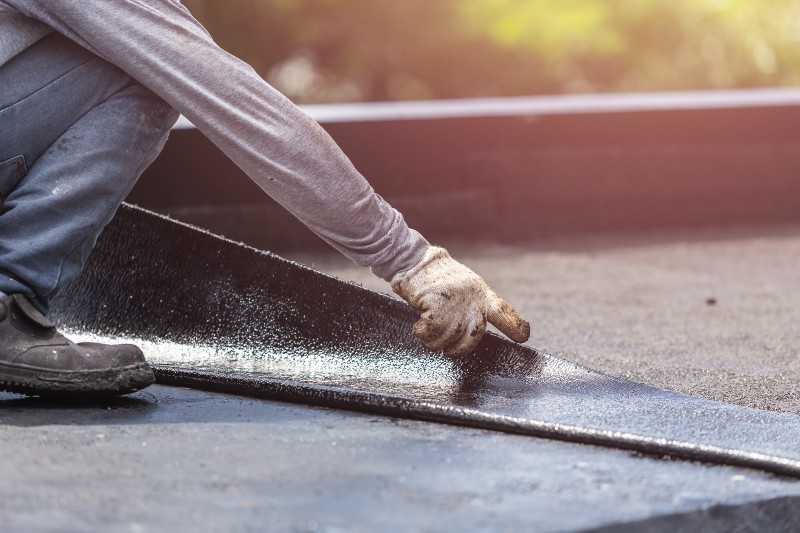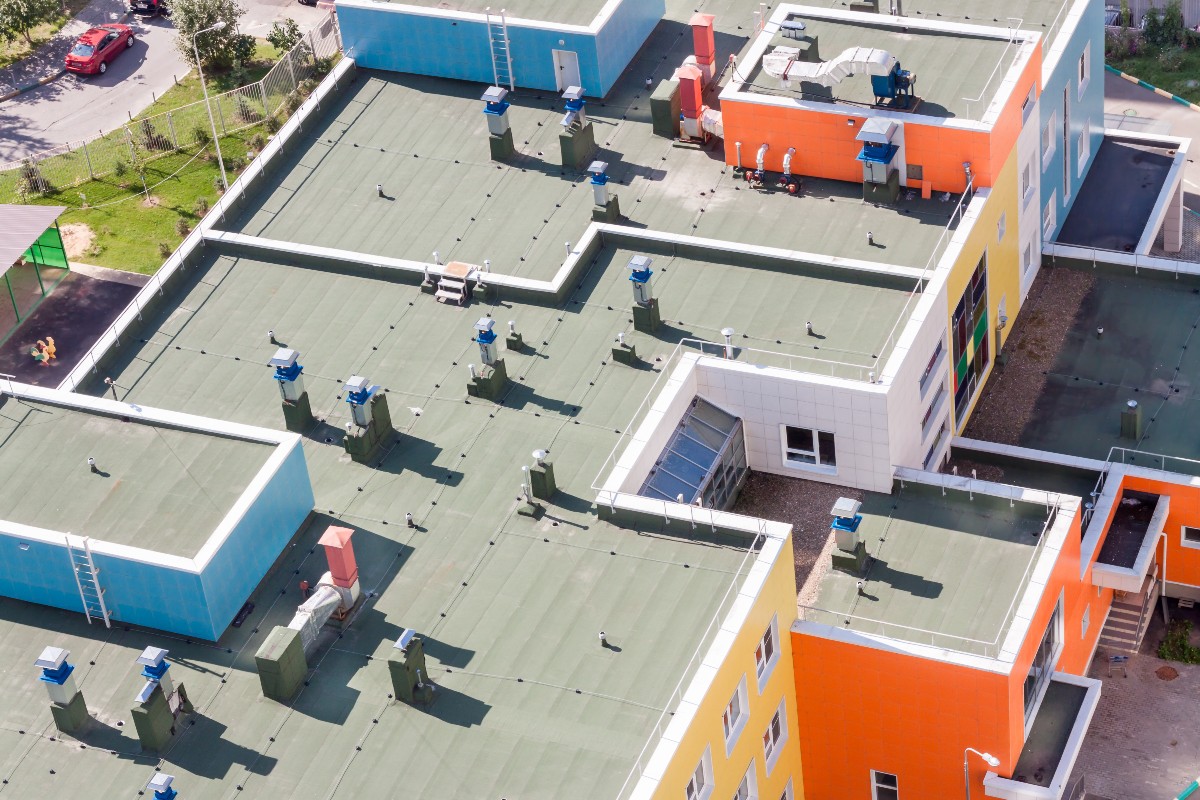Flat roofs have unique characteristics and requirements that demand specific types of roofing systems. Which one is best? Read on to learn the benefits and drawbacks associated with common flat roofing systems.
Modified Bitumen
Also known as mod bit, modified bitumen is an asphalt-based roofing material with special polymers that increase performance and pliability. It is manufactured into rolls consisting of a granulated or smooth surfacing finish and can be cold-applied, hot-applied or self-adhered.
Modified bitumen systems are typically pricier than other flat roofing materials and can last between 15 and 20 years. They are also a fairly energy-efficient and durable roofing solution that can hold up to extreme temperature variations while also reducing the flow of heat on the surface of a roof.
The main disadvantage of a mod bit roof is its relatively shorter lifespan. It can also be hard to identify the source of potential leaks on this particular type of roofing substrate.
Built-Up Roofs
Used for more than a century, built-up roofs (BUR) are some of the most common kinds of roofing systems used on industrial and commercial structures. They are composed of alternating layers of asphalt (bitumen) and ply sheets (reinforcing fabrics). They’re then finished with a layer of aggregate, such as mineral granules, slag or gravel.
Most BUR roofing systems will have a lifespan of 15 to 30 years. They usually demand little maintenance and provide very good waterproofing and UV protection. The top layer of aggregate also provides additional fire protection and an aesthetically pleasing appearance.
On the downside, BUR roofs are more expensive than other flat roofing options. They are also susceptible to wind and water damage and take longer to install.

EPDM Rubber
A synthetic rubber compound, EPDM (ethylene propylene diene terpolymer) is often used on low-slope commercial flat roofs. Commonly known as “rubber roofing,” EPDM has gained a well-earned reputation as an effective and versatile roofing solution.
The material is conformable, durable, lightweight and impermeable. It has an impressive lifespan of around 30-plus years and typically costs less than other kinds of single-ply roofing membranes. EPDM is also relatively easy to maintain compared to other types of flat commercial roofing materials.
For all its many advantages, however, EPDM is not well-suited for all commercial roofing environments. It has a tendency to shrink with age and also tends to puncture easily.
Most EPDM membranes are black, but you can find some that are tan, gray or white. Since black EPDM roofs are likely to absorb more heat, they aren’t as energy-efficient as bright-white options.
Single-Ply (PVC, TPO)
Over the last couple of decades, single-ply membranes such as TPO and PVC have become a much more common sight atop commercial flat roofs. These two specific materials look so similar it can be hard to tell one from the other. Both are white, thermoplastic, heat-welded roofing systems. But that’s where the similarities end.
Polyvinyl chloride (PVC) is a durable product with a lifespan of about two decades. It’s fire- and water-resistant. It’s also rated to hold up to heavy winds. That said, this kind of roofing system typically costs more and has a weaker puncture resistance than TPO and EPDM.
Thermoplastic polyolefin (TPO), on the other hand, is a flexible roofing material that lasts between 10 and 25 years. It’s cheaper than PVC and is relatively easy to maintain and install. Since TPO has only been around since the early 1990s, little is known about the potential long-term impact of using this roofing system.
You should also know that there is some concern over quality variations from one manufacturer to the next.
Which Is Best?
When it comes to choosing a roofing system for your flat roof, there are a lot of things to consider. While one product may be perfect for a specific structure, it may be entirely inappropriate for another. To determine which is best for your needs, it’s important to get an assessment from a reputable roofing contractor with years of experience working with every available flat roofing option.
For decades, the experienced professionals at A to Z Roofing have served numerous satisfied customers throughout the Denver metro and the Front Range. For nearly a quarter of a century, we have been the region’s most reliable source for expert residential and commercial roofing. During this time, we’ve provided comprehensive service using top-quality roofing products. Contact our attentive team for a free estimate, and to learn how we can replace, repair or restore your damaged or aging roof.

